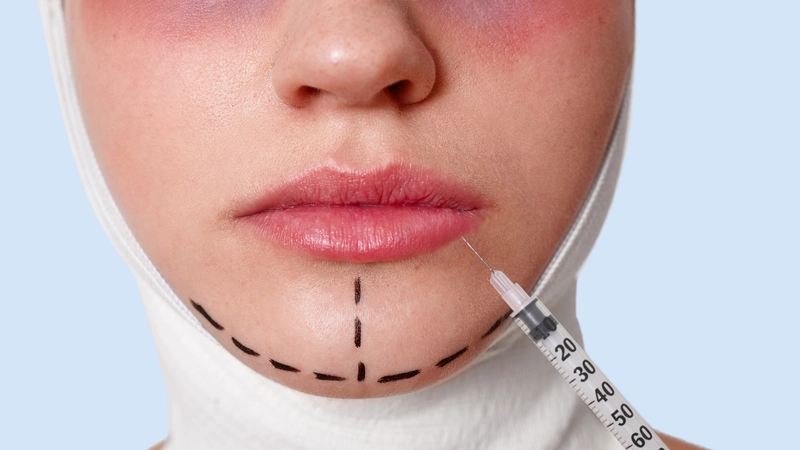South Korea tops global charts in plastic surgery procedures, driven by cultural norms and societal pressures. The emphasis on appearance and beauty standards raises concerns about self-esteem and potential pressures, particularly for women. Embracing diversity, promoting self-acceptance, and valuing inner beauty can foster a more inclusive and accepting society.
South Korea Tops the Charts in Plastic Surgery Rates
According to data from the International Society of Aesthetic Plastic Surgery (ISAPS), South Korea holds the top spot for plastic surgery procedures per capita, with an estimated 8.9 surgeries per 1,000 people. This translates to a thriving plastic surgery industry valued at over $10.7 billion in 2018, accounting for approximately 25% of the global market share.
Cultural Influences and Societal Pressures
The prevalence of plastic surgery in South Korea can be attributed to a complex interplay of cultural factors and societal pressures. The pursuit of an idealized beauty standard, often emphasized in popular media, has led to a widespread belief that cosmetic enhancements can improve one’s appearance and social standing. This is particularly evident in the case of facial features, where South Korea is known for its emphasis on small noses, large eyes, and V-shaped jawlines.
Personal Experiences and Online Discussions
The online community theqoo provides a glimpse into the personal experiences and perceptions of South Koreans regarding plastic surgery. Comments on a recent post discussing the country’s ranking in plastic surgery rates revealed a range of perspectives. While some users shared anecdotes of high rates of plastic surgery among their acquaintances, others expressed concern over the prevalence of appearance-based judgments and the potential pressures to undergo cosmetic procedures, particularly among women who face intense scrutiny of their facial features.
Questioning the Validity of Statistics
Some have raised questions about the accuracy of the ISAPS statistics, suggesting that the inclusion of foreign patients seeking plastic surgery in South Korea may inflate the country’s numbers. While Seoul’s Gangnam districts are known for their concentration of plastic surgery clinics catering to international clientele, the extent of their impact on the overall statistics remains a topic of debate.
The Visible Impact on Appearance
Despite the uncertainties surrounding the statistics, the visible transformation of South Korean society is undeniable. The prevalence of double eyelid surgery, for instance, has led to a noticeable shift in facial features among younger generations.
A Culture of Intervention and Social Influence
South Korea’s culture of open discussion about personal matters often extends to the realm of cosmetic procedures. Friends and family may openly suggest or encourage plastic surgery, particularly for procedures like double eyelid surgery, which have become increasingly common. This social influence can contribute to individuals’ decisions to undergo cosmetic enhancements.
A Booming Industry with Global Appeal
The high demand for plastic surgery in South Korea has fueled the development of advanced surgical techniques and expertise. Coupled with relatively affordable costs compared to other developed countries, this has made South Korea a popular destination for medical tourism, attracting individuals from around the world seeking cosmetic procedures.
Beyond Aesthetics: Addressing Societal Issues
While the plastic surgery industry contributes significantly to the South Korean economy, it also raises concerns about the underlying societal factors that drive its prevalence. The emphasis on appearance and the potential pressure to conform to beauty standards can have negative consequences for individuals’ self-esteem and mental well-being. This is particularly concerning for women, who often bear the brunt of societal expectations regarding physical appearance.
Striking a Balance: Embracing Individuality and Privacy
As South Korea continues to evolve, finding a balance between personal expression and respect for individual choices is crucial. While plastic surgery can be a tool for enhancing one’s self-image, it should not be driven by societal pressures or external judgments. Fostering a culture that values individuality and privacy can help alleviate the undue emphasis on appearance and promote a more inclusive and accepting society.
A Path Forward: Embracing Diversity and Self-Acceptance
Moving forward, South Korea can strive to cultivate a society that embraces diversity and promotes self-acceptance, where individuals feel empowered to make informed decisions about their appearance without succumbing to external pressures. By fostering a culture that values inner beauty and individuality, South Korea can move beyond its reputation as the “plastic surgery capital of the world” and embrace a more holistic approach to well-being.
Photographer: user18526052 Source: Freepik
Here’s a link to theqoo.I appreciate you taking the time to read this post. Please share your thoughts in the comments!

